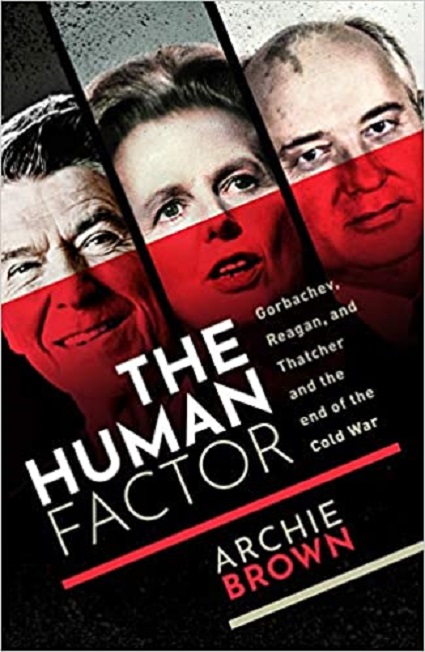
Categorii: Neclasificat
Limba: Engleza
Data publicării: 2020
Editura: Oxford University Press
Tip copertă: Paperback
Nr Pag: 512
ISBN: 9780192856531
Dimensiuni: l: 16cm | H: 23.8cm | 250g

In this penetrating analysis of the role of political leadership in the Cold War's ending, Archie Brown shows why the popular view that Western economic and military strength left the Soviet Union with no alternative but to admit defeat is wrong. To understand the significance of the parts played by Mikhail Gorbachev, Ronald Reagan and Margaret Thatcher in East-West relations in the second half of the 1980s, Brown addresses several specific questions: What were the values and assumptions of these leaders, and how did their perceptions evolve? What were the major influences on them? To what extent were they reflecting the views of their own political establishment or challenging them? How important for ending the East-West standoff were their interrelations? Would any of the realistically alternative leaders of their countries at that time have pursued approximately the same policies?
The Cold War got colder in the early 1980s and the relationship between the two military superpowers, the USA and the Soviet Union, each of whom had the capacity to annihilate the other, was tense. By the end of the decade, East-West relations had been utterly transformed, with most of the dividing lines -including the division of Europe- removed. Engagement between Gorbachev and Reagan was a crucial part of that process of change. More surprising was Thatcher's role. Regarded by Reagan as his ideological and political soulmate, she formed also a strong and supportive relationship with Gorbachev (beginning three months before he came to power). Promoting Gorbachev in Washington as a man to do business with, she became, in the words of her foreign policy adviser Sir Percy Cradock, an agent of influence in both directions.
A fascinating and instructive read ... Everybody will learn something from this first-class book. ― Dominic Sandbrook, The Sunday Times
A masterly survey of the end of the cold war and the roles played in it by Gorbachev, Ronald Reagan and Margaret Thatcher. ― Tony Barber, The Financial Times
Lucidly written and scholarly. ― The Spectator
Browns narrative is peppered with anecdotes that add texture to our knowledge of the period. At times he injects great humour. At others, as in his retelling of the failed coup against Gorbachev and the eventual collapse of the Soviet Union, he infuses the narrative with drama and gripping suspense ― , English Historical Review
In The Human Factor, Brown zooms out from analyzing Soviet decision-making and asks a broader question about why the Cold War ended. Scholars have proposed multiple explanations for the Cold War's end... but Brown encourages readers to focus on the personalities at the top of both the Soviet party-state and Western governments. ― Chris Miller, The Russian Review
It is often a challenge for historians to find the right balance between the human factor and the historical forces at play. The value of Archie Brown's study [...] is that it does precisely that. ― Christopher Coker, Literary Review
What The Human Factor does do, and does so well, is provide a fascinating new perspective on already well-trodden ground. ― All About History
Brown devotes several fine-grained biographical chapters to the "making" of Gorbachev, the "rise" of Reagan, and the "moulding" of the "Iron Lady", and then traces the three leaders interactions... The result is a compelling picture of what led [them] to act as they did and how the difference each one made differed from the impact of the others. ― William Taubman, The Political Quarterly
... magisterial work... based on a wealth of sources in Russian and English... The Human Factor is as much a fine work of foreign policy analysis as it is Cold War history... a fascinating, close-structured narrative. ― Christopher Hill, Cold War History